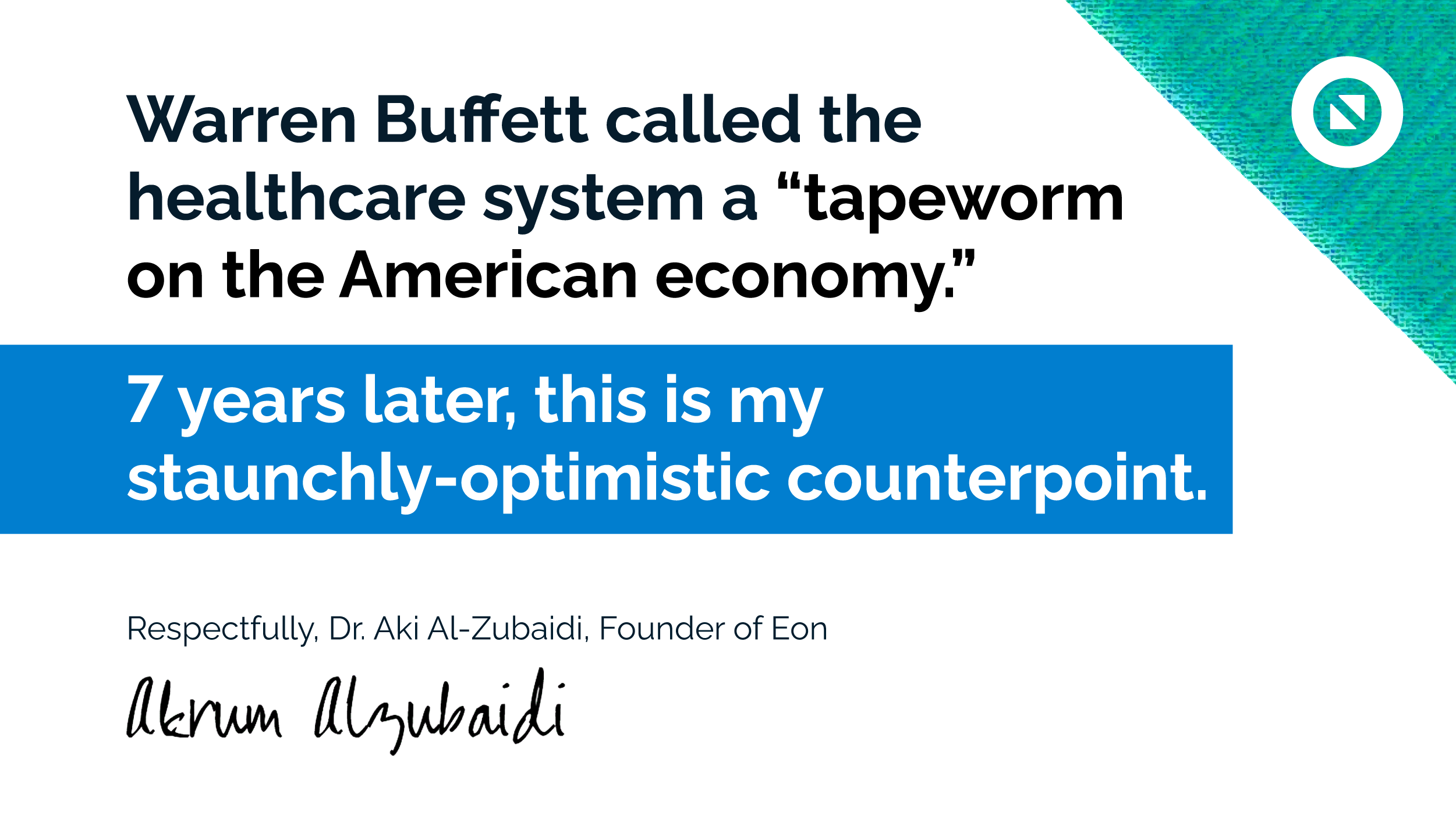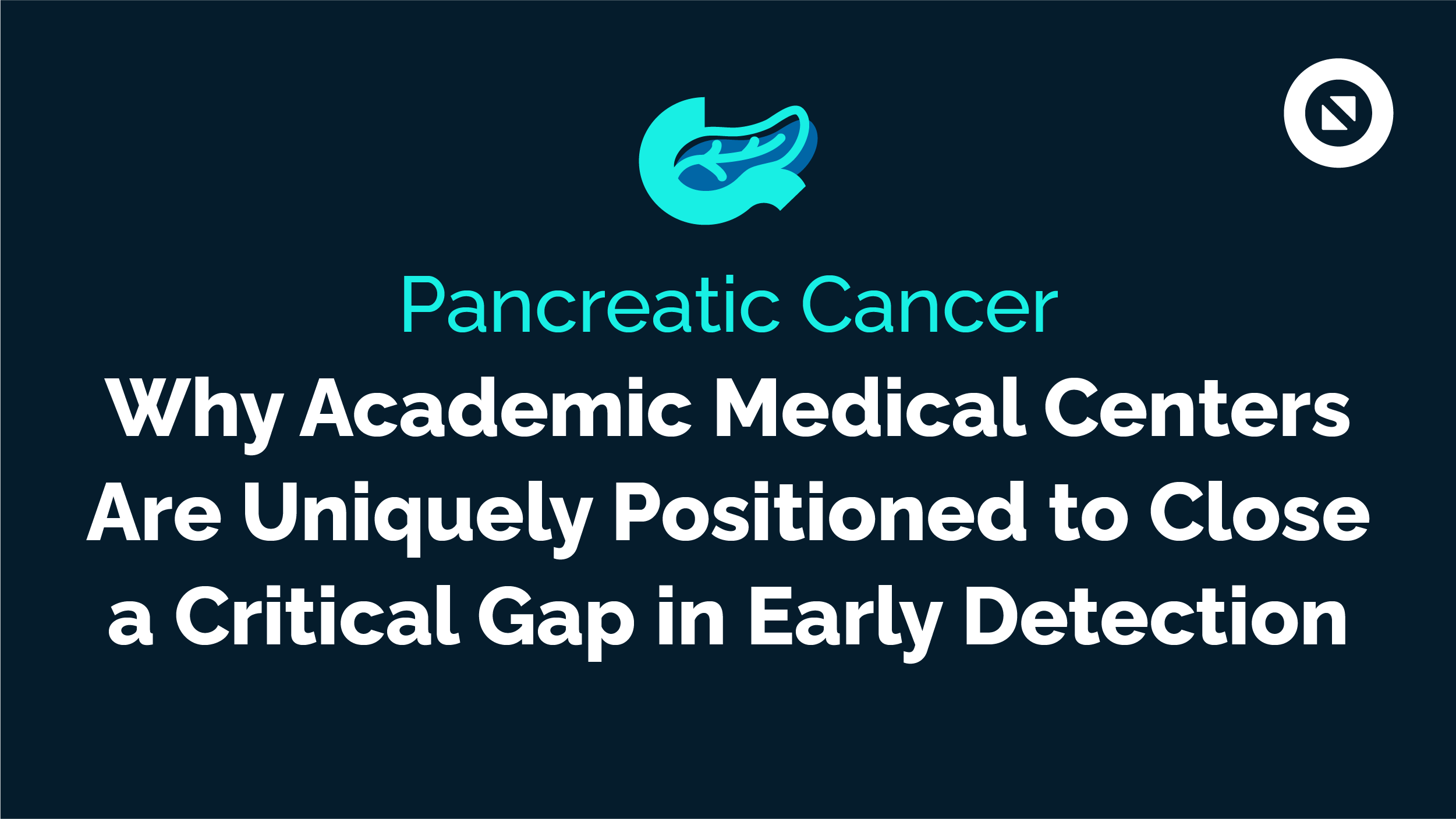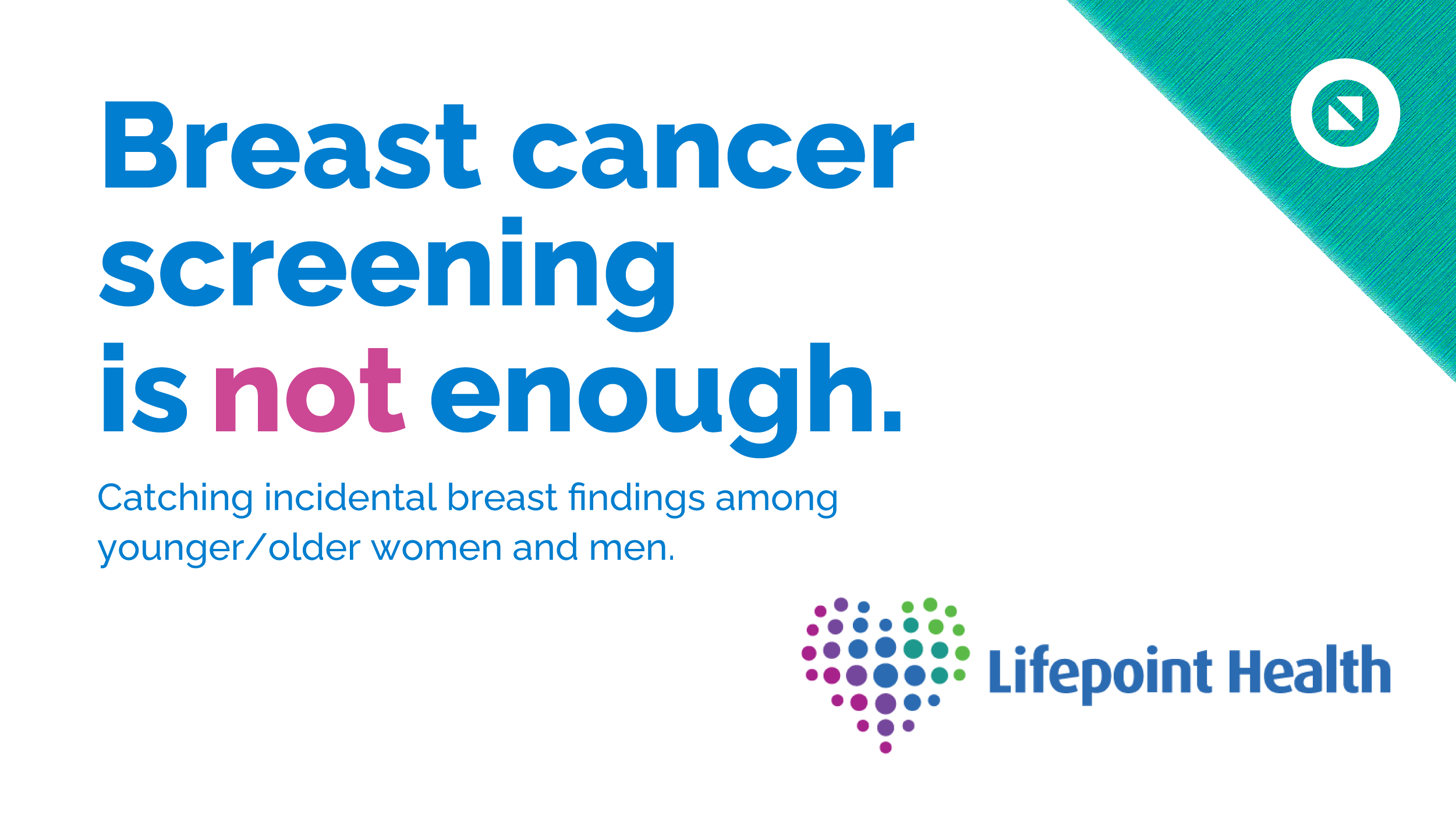

Warren Buffett called the healthcare system a “tapeworm on the American economy.” 7 years later, this is my staunchly-optimistic counterpoint.
First: piles of data show that our system is broken. Despite spending more on healthcare than any other high-income country, the US has the highest rate of people with multiple chronic diseases. Anyone who spends time on the front lines will inevitably experience this heartbreaking reality firsthand. I saw my own patients fall through the cracks, whose lives could have been saved if only we had better care systems in place.
So is the healthcare system broken? Yes.
Is healthcare hopeless? NO.
We are in a new era of care.
I’m sick of the “system is broken” spiel. Truth is, there are hugely positive tailwinds at our back. But the way we’ve been thinking about the problem is holding us back from solving it.
Here’s why.
1. Change has to start with insiders, not outsiders.
Outsiders tend to look at the healthcare system as if it’s sterile. It’s not. It’s messy and it’s dirty. And if you don't deeply understand all the messiness and dirtiness, you're going to create solutions that can’t work in that environment. It’s like navigating a minefield with a blindfold on.
I believe huge change will come from a small group of people. This is already unfolding.
2. Data organization is the first domino.
A key barrier to change is that none of our data is tied together. Diagnoses, treatment, and billing all happen in separate silos. This means that we have no way to understand what a patient was diagnosed with, what treatments were given, how much those treatments cost, and what outcomes were achieved because of those treatments. You can’t reduce cost if you can’t connect these dots.
That’s a messy problem. But believe it or not, COVID has actually accelerated change in a positive way. COVID was extremely hard on hospitals. There were countless negative impacts. But it also exposed a lot of waste, and it changed peoples’ mentalities
Over the past few years, I’ve seen massive demand for solutions like Eon that create efficiencies by reducing FTE burn, generating revenue, or improving patient loyalty. Hospitals are now seeking these solutions out, and they are very defiantly saying no to wasteful spending, or no to anything that’s not right for the patients. This is a step forward.
Second, there’s a convergence happening through hospital acquisitions. This may not be the ideal solution, but I think it’s a pragmatic one. Larger systems have economies of scale, solutions get adopted faster, and insights can be shared more widely. Transparency of insights is crucial.
If the appetite and the environment for change is there, why haven’t we turned the corner yet?
EHRs initially aspired to organize data. But in practice, they were designed to be billing and scheduling systems to move us from paper to electronic systems, and to help audit fraud. They were never designed to tie together interventions and outcomes.
There’s an intelligence layer that we’re missing. And that’s exactly what we’re obsessively-focused on at Eon: an Intelligent Care system designed from the ground up to unlock the promise of the EHR.
3. We’re closer than you think.
Unlike others, I see a very real path. And I have nothing but optimism. I truly believe change will happen in a very short time. In 5-10 years, seeing “hope” in healthcare will not be a rebel stance. We will all be believers again.
How we get there is clear. We need to sequence small, iterative steps – not just wishful leaps. And we need an end-to-end approach, we can’t keep playing “healthcare whack-a-mole.”
Finally, it’s easy for me to be a believer because I can see the sea change already happening.
Across 905 hospitals, Eon has identified over 1.5M patients as at risk for lung cancer, pancreatic cancer, aneurysms, or other conditions. Of those, 90% returned for early treatment. Those are real results, and real lives saved.
And it’s only the tip of the iceberg.
Respectfully,
Dr. Aki Al-Zubaidi, Founder of Eon



.png)
